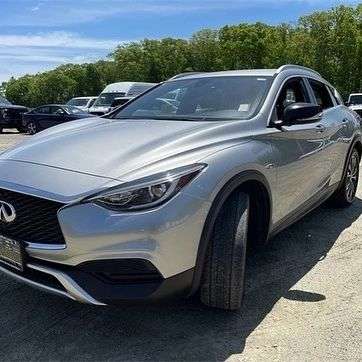Buying Used Japanese Cars: What You Need to Know
Japanese cars are known for their reliability, fuel efficiency, and practicality, making them a popular choice among car buyers around the world. However, buying a new Japanese car can be expensive, which is why many people opt to buy used instead. If you’re considering buying a used Japanese car, here’s what you need to know.
Why Buy Used Japanese Cars?
There are several reasons why buying a used Japanese car can be a good idea. First and foremost, Japanese cars are known for their reliability and durability, which means that even used cars can still be in good condition. In addition, Japanese automakers have a reputation for quality control and attention to detail in the manufacturing process, which means that used cars are often in better condition than cars from other countries.
Another reason to buy a used Japanese car is cost. Japanese cars can be expensive when bought new, but buying used can save you thousands of dollars. This is especially true if you’re buying a car that’s a few years old, as it will have already depreciated in value.
Finally, Japanese automakers have been at the forefront of developing hybrid and electric cars, which are becoming increasingly important as the world moves towards a more sustainable future. Buying a used hybrid or electric Japanese car can be a great way to reduce your carbon footprint and save money on gas.
Tips for Buying Used Japanese Cars
If you’re in the market for a used Japanese car, here are some tips to help you make an informed decision:
- Do Your Research
Before you start shopping for a used Japanese car, it’s important to do your research. Look up the make and model you’re interested in and read reviews from other owners. This will give you a better idea of what to expect from the car and help you make an informed decision.
- Check the Car’s History
When buying any used car, it’s important to check its history before making a purchase. This can include things like accidents, previous owners, and maintenance records. You can get this information from services like Carfax or AutoCheck.
- Consider Certified Pre-Owned
If you’re buying a used car, consider getting a certified pre-owned (CPO) vehicle. CPO cars have been inspected and refurbished by the manufacturer and come with a warranty, making them a good option for those who want the peace of mind that comes with buying a new car.
- Inspect the Car
When you go to look at a used Japanese car, make sure to inspect it thoroughly. Look for any signs of wear and tear, such as dents, scratches, or rust. Check the tires, brakes, and suspension to make sure they’re in good condition. You may also want to have a mechanic inspect the car before making a purchase.
- Test Drive the Car
Before you buy any car, it’s important to test drive it. This will give you a better idea of how the car handles, how comfortable it is, and whether or not it meets your needs. Make sure to take the car on a variety of roads, including highways and back roads, to get a good sense of how it performs.
Best Used Japanese Cars to Buy
If you’re in the market for a used Japanese car, here are some of the best options to consider:
- Toyota Corolla – The Toyota Corolla is one of the most popular cars in the world and has a reputation for reliability and durability. It’s a practical and efficient car that’s perfect for those who want a simple and reliable vehicle.
- Honda Civic – The Honda Civic is another popular choice for those looking for a used Japanese car. It’s known for its reliability, fuel efficiency, and fun-to-drive nature.
- Nissan Altima – The Nissan Altima is a mid-size sedan that’s known for its comfortable ride and fuel efficiency. It’s also a good choice for those who want a spacious interior and plenty of features.
- Mazda3 – The Mazda3 is a compact car that’s fun to drive and stylish. It’s also known for its fuel efficiency and reliability.
- Subaru Impreza – The Subaru Impreza is a versatile car that’s available as a sedan or hatchback. It’s known for its all-wheel drive system and durability, making it a good choice for those who live in areas with harsh weather conditions.
Conclusion
Buying a used Japanese car can be a great way to save money while still getting a reliable and practical vehicle. However, it’s important to do your research, check the car’s history, and inspect the car thoroughly before making a purchase. By following these tips and considering some of the best used Japanese cars on the market, you can find a car that meets your needs and fits within your budget.



